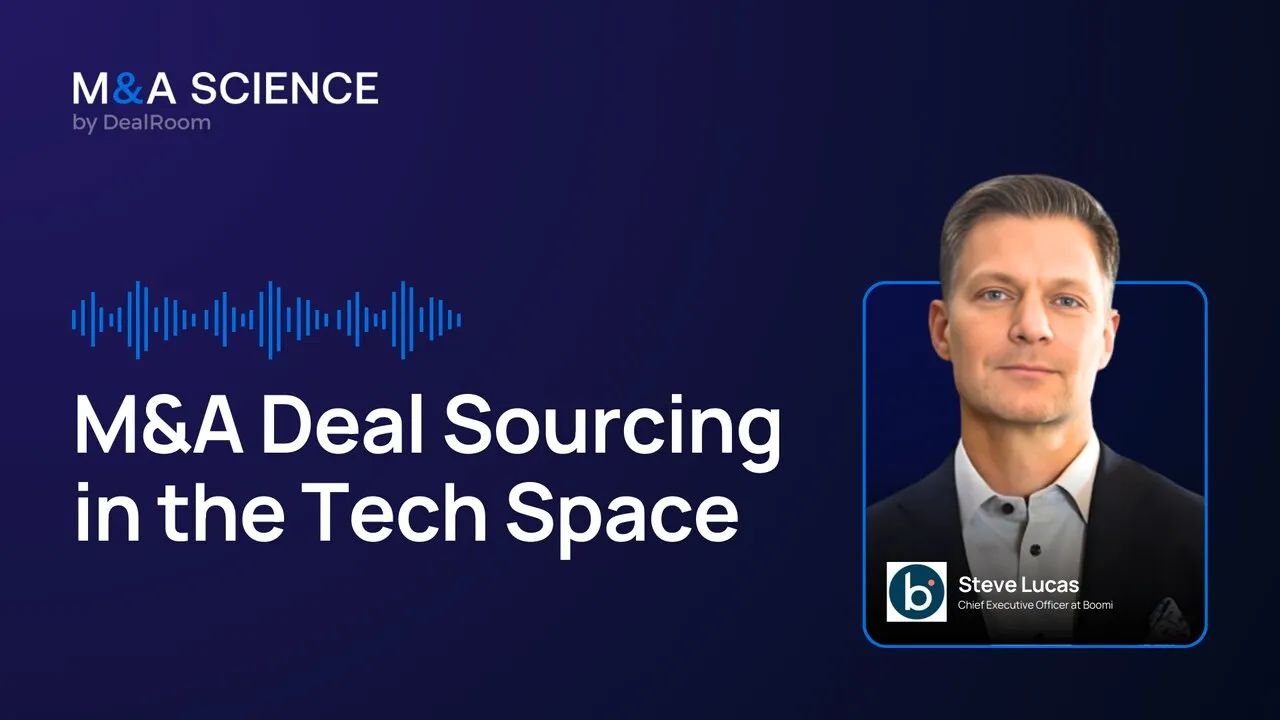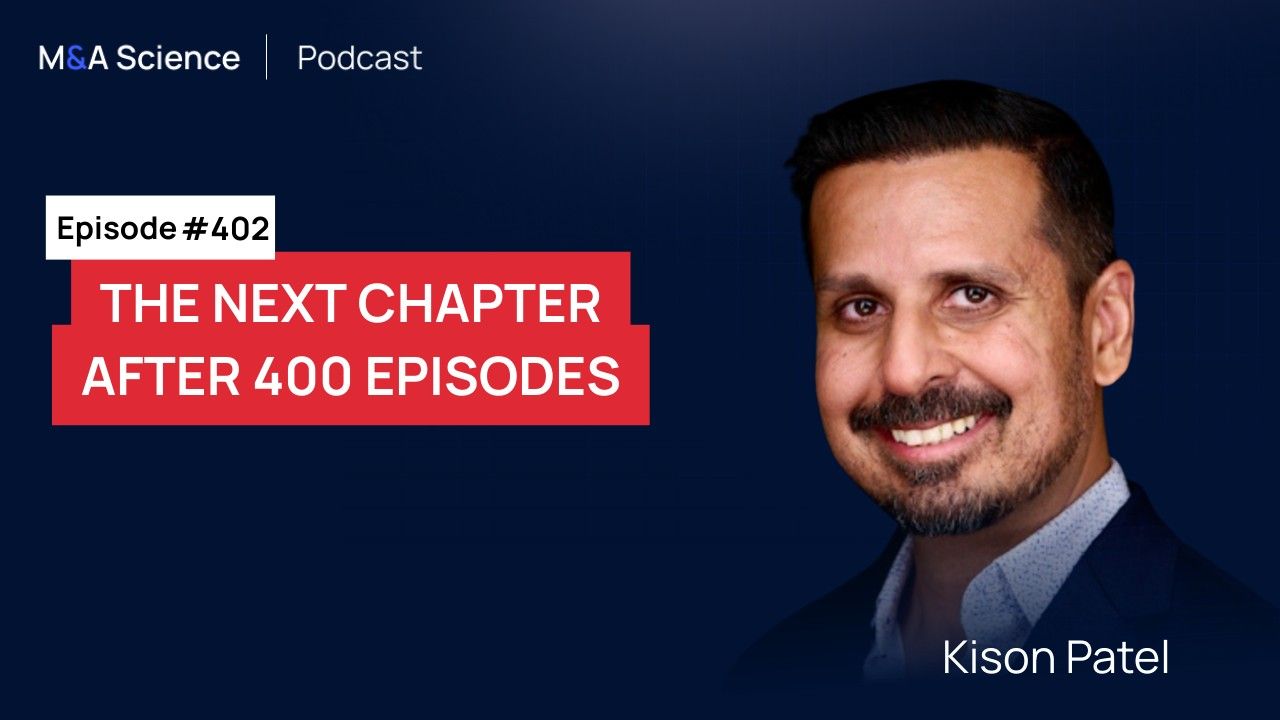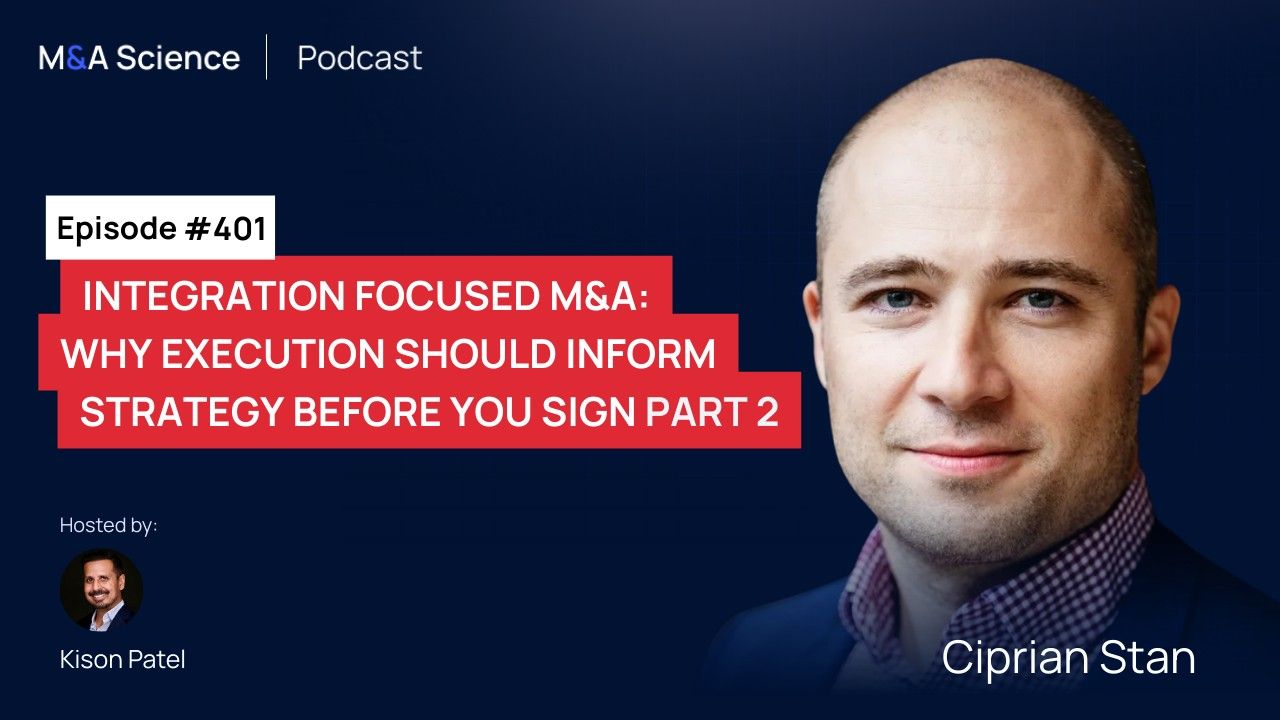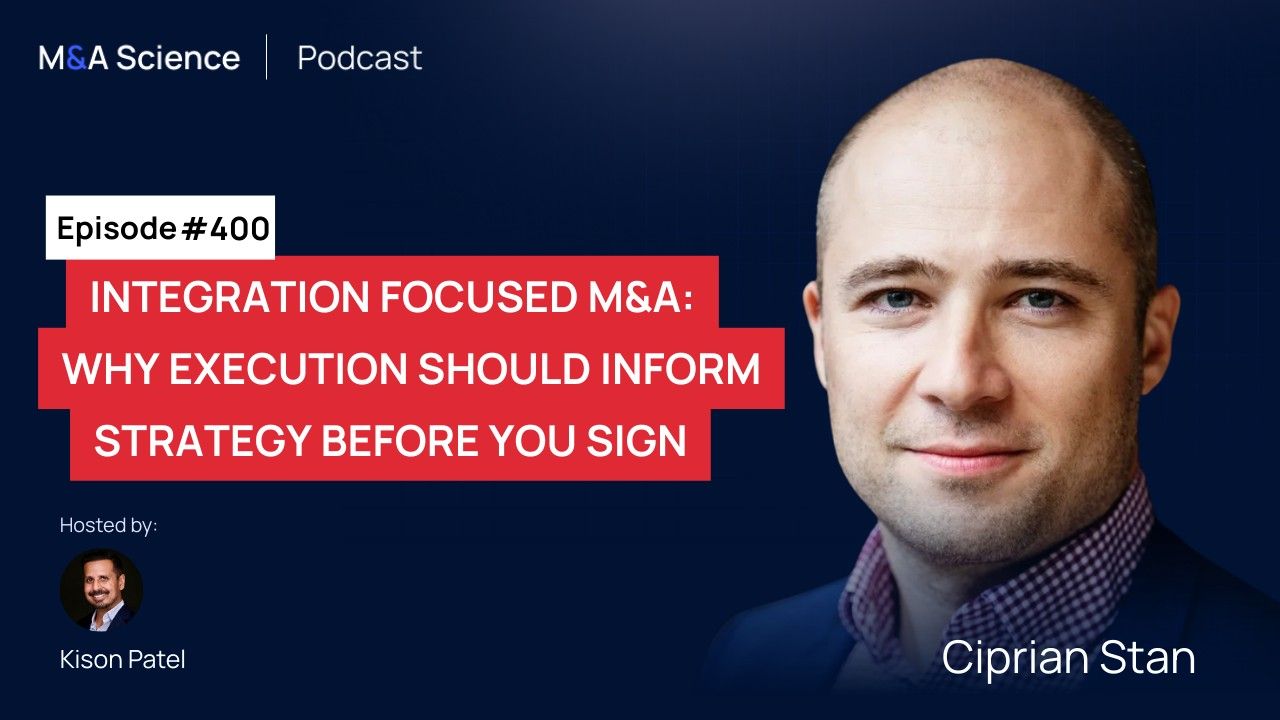
Boomi powers the future of business with intelligent integration and automation. As a category-leading, global software as a service (SaaS) company, Boomi celebrates more than 20,000 global customers and a worldwide network of 800 partners. Organizations turn to Boomi’s award-winning platform to connect their applications, data, and people to accelerate digital transformation.
Steve Lucas
Steve Lucas is the Chairman and CEO of Boomi, marking his third tenure as CEO, with prior leadership roles at iCIMS and Marketo, where he led the company through its acquisition by Adobe. With nearly three decades in the enterprise software sector, Steve has held senior executive positions at major cloud organizations including SAP, Salesforce.com, and BusinessObjects. He is based in Denver, Colorado, where he lives with his family, and has a strong track record of driving growth and strategic investments in the software industry.
Episode Transcript
Boomi’s approach on strategy
Strategy is the confluence of a few things. Number one is what are you extraordinarily good at? You always have to approach strategy from a position of strength to a certain degree; it gives you permission to build things.
But then the other is what opportunities do you see within your existing customers to solve really painful things? Even in this modern world, where AI is expected to magically fix everything in a few years, things are still very complicated for customers. Finding those problems and solving them well generally leads to economic rewards.
The third aspect is having a moonshot or a big, hairy, audacious goal. It's asking yourself, if we swung for the fences and just sent it, what would that be? At Boomi, I sat down with my engineering team and discussed the radical changes in the world with large language models, small language models, and vector databases.
Should Boomi be something more? Maybe we need to be a database vendor. It's a silly notion, but if you're not willing to say it, you'll never be it. We're not going to be a database vendor, but you have to be willing to challenge those notions.
Great strategy comes from a convergence of those three things: a position of strength, understanding the challenging problems you can solve for your customers, and being willing to dream big. You always have to be rethinking your strategy. What works today, what we announced here at Boomi World, might not work a year from now.
One particular leader when Adobe acquired Marketo, where I was the CEO, was Shantanu Narayen, who is still the CEO of Adobe and deservedly so. The guy's borderline genius; he is amazing. Now, he shuns that kind of stuff, but I have been in the room with him. There was a term that he used to use.
In my 40s, I found myself still learning from him. You'd sit there thinking you just did this great thing with Marketo, and Adobe spent all these billions of dollars on it. Then you walk into a room and get quickly humbled by someone that smart. He would often talk about altitude in strategy. We'd discuss the strategy for the business or sub-segments thereof, and he would often ask, are we at the right altitude?
Sometimes people get too high or too low in altitude. So, if I could add a bonus fourth to strategy, it's that you have to fly at the right altitude with your strategy at all times. We've seen great products that get introduced too early; they're a little too high level. They're almost there, but not quite that last little bit. I've just learned so much from people like that in my life.
Maybe the key to all this is always be learning. I meet people like that, and no matter how far you come in life, you realize there's always somebody smarter out there.
During that deal, we were private equity-owned by Vista, a large private equity firm. Vista was leading those negotiations. A CEO's first job is to do a good job and build a durable asset. Forget the negotiations; there's nothing to negotiate if you haven't built a great company with a great solution that solves big problems. If you don't have that, it doesn't matter. So, check, did that first and foremost.
Beyond that, you start evaluating the organization. Valuations have changed over time. Once upon a time, 4x became the new 2x, then 8x became the new 4x, and so on. Valuations for software companies peaked in 2021, but back in 2018, when Marketo was acquired by Adobe, the first series of conversations started with a couple of people, not Shantanu, who were involved in that negotiation.
It was many people. Once we started engaging with them, Vista, as the owner of Marketo, had a specific return they wanted. It was a group negotiation.
Acquiring capabilities
Coming back to strategy, our position of strength is integration and automation. This is what we do for 20,000 plus companies every day. We provide leadership by sending billions of messages weekly and hundreds of millions per day, integrating complex enterprise applications for our customers.
This is our position of strength. We are trusted to connect complex enterprise systems at scale. You mentioned MuleSoft, a terrific technology, though a bit heavy to deploy and manage. They are true innovators in API management. When they got acquired by Salesforce and key talent left, they started to lose sight of their strategy. This created an opportunity for Boomi.
There's a vacuum in the market, and we saw it as a chance to take advantage. Boomi was building API management capabilities in addition to integration. Everything needs an API to communicate, and if developers can make these things talk to each other, it creates immense value.
Boomi was not the leader in that category, but with demand from our customers and the vacuum created by the Salesforce acquisition of MuleSoft, there was a golden opportunity.
We started sourcing, talking to every independent API management company on the planet. It involved a lot of "dating," but it was necessary to find the right fit.
Deal sourcing in M&A
I’m very involved with the shopping. A company like Boomi, even though we're half a billion in recurring revenue and growing quickly, if you're going to own the vision and strategy as a CEO, you have to be involved. This is not inconsequential. We were sourcing and shopping, and we learned quickly that the vast majority of API management vendors are still deploying their technology on-premise.
I was really surprised. Boomi is a cloud management integration company. We're not changing who we are. We found Mashery, a cloud-native API management solution, which was perfect for us. It was owned by the Cloud Software Group, formerly Tibco and Citrix. Through a long but productive negotiation process, we agreed to acquire the whole business.
That's one. Now, here's the zooming part. The reason we bought that technology is because there's enterprise gateway capability, reliability, and scalability. We want API management to be as big, scalable, reliable, and trusted as the integration automation we do today. The second thing we know is everyone and their dog has at least one, but more likely multiple API management solutions.
We're not pretending to be the only one. Enterprises love standards and have all of them. We zoomed out and said, what if we had the ability to deliver a universal control plane to manage multiple API management solutions at once? We found a company based in Germany named Apita, which provides a federated solution for API management.
With Boomi's current infrastructure plus this federated approach, we create a unique solution. Even if someone picks MuleSoft over Boomi, we can still use our control plane to manage multiple API management solutions. So, even when we lose, we can still win.
Building relationships
You're always walking into a certain degree with the CEO because they want to be the first touch point in these conversations. I want to get to the head of engineering very quickly.
Unfortunately, there's no Bumble for M&A yet. You have to figure out what people's objectives are in all of this. I am really direct upfront, saying I have a simple job: to build our company to a position of leadership and dominance in every category we play in.
I realize you are building an amazing company and want to turn this into a multi-gajillion-dollar unicorn story. We're either going to build this ourselves or buy you. That's the conversation. I find it polarizing in a good way; it gets real quick. By the way, the right answer is usually, "We don't want to sell to you. We think we can do this better than you."
That's the best answer. Now I'm leaning in, now I want that company, and it's irresistible. Generally, if they say, "Okay," it's actually the wrong answer.
The kinds of entrepreneurs you want to meet, interact with, and ultimately might end up at your company are those who can put you out of a job. I want people who can take my job. I don't want someone who is just looking for the first opportunity to dump an asset.
But if I find that person who looks me in the eyes and makes me a little nervous, that's the right feeling. It's that level of entrepreneurial aggressiveness I'm looking for. I want to know how they respond to my assertion. I want someone who can say, "You can't build what I've got, and I'll tell you why." I want to be proven wrong.
Convincing someone to sell their business
That's what took forever. A year and a half ago, I got to Boomi, and the first thing I said to my board was, "API management is kind of important here." A year and a half later, we finally got to acquire these technologies because entrepreneurs are passionate.
What I know is how to scale. It's a thing I've learned. I know how to take a good company and make it great. I know how to take a great company and make it unbeatable. Look at Marketo. When it was acquired and taken private by Vista, they paid 1.2 billion in cash and 400 million in debt. So, a 1.6 billion buy price. Twenty-four months later, we sold it for almost 5 billion dollars.
What did I see that others didn't? I saw a platform. Instead of presenting it as just a marketing automation tool, we characterized it as an experience and engagement platform. That rethinking enabled us to offer new solutions and build in new directions. The reason I share that story is that people buy products, but companies buy platforms. I know platforms. Lots of people say platforms, but they really don't know it.
If you look at what I did at SAP, Vishal Sikka built HANA, an SAP database, which was a laughable concept before. SAP resold Oracle. Vishal defied that notion and built a legitimate powerhouse for SAP customers.
I had the great fortune of working closely with him and other brilliant people. The notion was to build a platform where we had no right to win. We're not Oracle. When I pitch to entrepreneurs, I say I can help you find that right to win. I can give you my network, the ability to scale, and build a platform.
If you stick with it for another 10 years, it may work out for you. But if you become part of our organization, we will double, triple, quadruple in size and reach a global scale. After 30 years of doing this, I know how to scale.
It’s all about knowing your strength, and bringing this combined vision to the entrepreneur, and that correlates with getting there faster with a higher level of certainty.
We know all the scary stats around the percentage of startups that fail. The road is littered with lots of failed technology startups. Entering into that synergy and combined certainty, the right entrepreneur will find that compelling.
Example of pitch
First of all, Boomi has a platform of over 20,000 customers. The vast majority of those range from mid-sized to the world's largest organizations. It's a good starting point. We are connected to every single critical application and database in the world for those customers.
We have customers that use Boomi to connect thousands of applications, creating tens of thousands of business processes. We have the data that matters. When you talk about the world of M&A, if you want to drive M&A and science, the convergence of those terms is compelling.
You need information, not just a little bit, but a lot of it. The more information you have access to, the more compelling your solution becomes.
There is no company that can provide that level of information like Boomi.
Negotiations during M&A
First and foremost, the hard part is there's still a lot of hangover from the 2021 funding craze and the valuations. The first thing I always say in these discussions and negotiations is, if you're aware of a multi-trillion dollar stimulus package coming down the pipe, I'd like to know about it.
But those days are gone. That happened during COVID and potentially the financial crisis of 2008, when we had stimulus packages right after that.
The multiple multi-trillion dollar stimulus packages that flooded the market with cash and raised the ability for organizations to accrue and raise ungodly sums of money are not happening currently. Number one.
Number two is I get the expectations that were set with those 2021 multiples. Totally get it. That's awesome. All you have to do is look at the map. We have myriad publicly traded organization examples right now.
Even in our industry, look at Silverlake that bought Software AG. They acquired Software AG, which is a good company with big revenue, and then IBM bought the web methods chunk of that. We get multiple exposures. I generally point to what public markets are actually dictating from a payment standpoint.
Look at the Wall Street Journal from three weeks ago, where there was this whole "Salesforce might buy Informatica" rumor, somewhere in the 12 to 14 billion range. Informatica is a good company, but that would be around a seven to eight X multiple on revenue.
That's not 2021's 20X or 40X. It's still a good multiple. We live in a normalized environment now, not an abnormal one. What we saw from 2020 to late 2021 or early 2022 was abnormal. You have to look at the macro for 30 years and see how multiples, minus that spike, have steadily improved.
My argument is always the same: show me how you're a durable company that's going to grow greater than 20-30%. Show me how you're going to be profitable greater than 20%. Then I'm willing to pay a high multiple. I was asked to come into Boomi, which has been a consistent 20% plus growth company, even at half a billion dollars.
The challenge with Boomi was profitability. This year, Boomi will be, for the first time in its history, a rule of 40 or better company. We'll be 20% plus growth, 20% plus profit at scale. That's unique. If someone can bring that to me, I'm all ears.
Tips on negotiating
Having a strong vision for your own company and leading with that is number one. Number two is finding like-minded people who are willing to challenge you. Those are the kinds of people I love to be around.
Number three in negotiating is always level setting. If you're owned by a private equity firm and live in reality, and someone else is owned by a venture capital firm and doesn't, it's important to quickly align on those elements. Don't waste each other's time. They want 20X, you can pay six, whatever that multiple may be.
Helping entrepreneurs understand the kind of network you can build is also crucial. For example, when I was CEO of iCIMS, before TA Associates came in and co-invested, we bought a video-hiring technology from a brilliant founder.
I remember telling him that he may not get the perfect price he aspired to, but if he partnered with me, I would help him in his future endeavors. He has a new startup, and we just demonstrated their new technology on stage today.
Helping entrepreneurs understand that the software world is as much about the network as it is the technology itself is essential.
M&A at Boomi
The currency is data. When it comes to M&A, there are many use cases, but the biggest one is that you can only move as quickly in M&A as your ability to integrate and metabolize companies, not just how quickly you can sign agreements and buy them.
That's the easy part to a certain degree. The hard part begins when you're integrating culture, human beings, processes, data, systems, and all the stuff that comes after M&A.
There are really two use cases. One is Boomi's ability to find, discover, connect, and access data that can help in M&A situations. The other part is integrating business processes. A massive use case for Boomi is, "Hey, I just bought a company. I need these things to talk to each other."
Boomi is often deployed for scenarios like, "You've got Oracle, you've got SAP. How are we going to produce consolidated financials?" Enter boomi.
As I say, we've all won acquisition arguments based on strong cross-sell synergy projections. The very next thing that comes up is, "We bought the company, but this sales force over here came from the acquiring parent, and the other sales force from the acquired company." None of the salespeople can access an opportunity, or they're stepping all over each other.
That is so fundamental and basic, it's almost a trope. We live in 2024. This should not be that hard. We can share information across different CRMs and financial systems, but it tends to be an afterthought. I would ask a basic question upfront before going into M&A: How are we going to share information?
I'm talking data, not just, "I'll email you about an account later once I establish it as mine in the CRM system." How are we going to share information and collaborate? Those questions are often asked too late.
Making integration successful
We use Boomi. That's it. We're Boomi on Boomi here. The reality is smart people with secure but unfettered access to real data and information generally make really good decisions.
But how often have you heard about a project or acquisition failing because teams couldn't communicate effectively? Or because they couldn't report to the board on cross-selling efforts? If access to information and data sharing is an afterthought, you've already failed.
As for actual tips, I will borrow Shantanu's change in altitude statement from earlier, data is not the new oil; it's sand. It's infinitely abundant, and there's a ridiculous amount of it.
Some of it is useful if you process it properly, like silicon chips and glass, but you have to be picky about the data you use. With Boomi, it's not about carpet-bombing data; it's about precision strikes. Know what information you really need. That's number one.
Number two is knowing how to move information between different systems to create outcomes. Often, in an M&A scenario, one company has a quick inside sales motion, while the other has a slower, more complex enterprise sales model. The cadence of data, how quickly you move it, and when you move it are crucial. What data do you need and how quickly do you need it? Is it real-time in nature?
The third, and most important, is how to consolidate data over time. At Boomi World, we showed off a technology that can synchronize all your data across platforms like Salesforce and Shopify with a few clicks using an AI agent. Why would you want to do that?
No company has a single definition of the word "customer." You might find different terms like "household" or "account" in different regions. To have a common conversation, you need a golden record.
If you're betting big on cross-sell and upsell in an acquisition, having accurate information is critical. What if your data is wrong? What if there's no accurate definition of "customer" between company A and company B? We solve that by creating a golden record across customer data, ensuring you have accurate information for success.
We use Boomi. That's it. We're Boomi on Boomi here. The reality is smart people with secure but unfettered access to real data and information generally make really good decisions.
But how often have you heard about a project or acquisition failing because teams couldn't communicate effectively? Or because they couldn't report to the board on cross-selling efforts? If access to information and data sharing is an afterthought, you've already failed.
I'm going to change my altitude for 30 brief seconds. Borrowing Shantanu's change in altitude statement from earlier, data is not the new oil; it's sand. It's infinitely abundant, and there's a ridiculous amount of it.
Some of it is useful if you process it properly, like silicon chips and glass, but you have to be picky about the data you use. With Boomi, it's not about carpet-bombing data; it's about precision strikes. Know what information you really need. That's number one.
Number two is knowing how to move information between different systems to create outcomes. Often, in an M&A scenario, one company has a quick inside sales motion, while the other has a slower, more complex enterprise sales model. The cadence of data, how quickly you move it, and when you move it are crucial. What data do you need and how quickly do you need it? Is it real-time in nature?
The third, and most important, is how to consolidate data over time. At Boomi World, we showed off a technology that can synchronize all your data across platforms like Salesforce and Shopify with a few clicks using an AI agent. Why would you want to do that?
No company has a single definition of the word "customer." You might find different terms like "household" or "account" in different regions. To have a common conversation, you need a golden record.
If you're betting big on cross-sell and upsell in an acquisition, having accurate information is critical. What if your data is wrong? What if there's no accurate definition of "customer" between company A and company B? We solve that by creating a golden record across customer data, ensuring you have accurate information for success.
AI in M&A
Most people will label me as an AI fanboy. I haven't seen a technology in my lifetime where I can type in an abstract concept, and then this technology, using parameters and reward tokens, takes a specific and nearly exact action based on that abstract task. That's what humans get paid to do. They take an abstract situation, figure it out, and then get specific in software, clicking buttons and moving records.
Credit where credit is due. The world is changing at a rate I've never seen in my 30 years of tech. We introduced a series of AI agents today. These helper agents can do things like, "Take the most recent five records or purchases in my Shopify system every Tuesday and move them to NetSuite." And it just does it.
We've reserved that work for humans, but now our orchestration agent can take an abstract request and turn it into a specific set of actions. This technology reimagines every enterprise application we've imagined for the past 30-40 years. These applications will begin to reason and adapt because the infrastructure is too brittle.
I use the example of a customer who uses Boomi to screen scrape websites to collect data. If the field moves one pixel, it breaks the integration. Technology should be smart enough to adapt and recognize the same field, even if it moves slightly. This is an example of how technology is too brittle. Small language model-based connectors can adapt and let humans approve the changes.
I also use the example of expense reports. I hate filling them out and approving them. But it's the perfect example of work that's going to go away because approving expense reports involves human judgment and corporate policy.
Organizations are training models to do a better job at approving expense reports than humans. Two years from now, no human will approve expense reports. That's an example of a decision that's going away. Times about 10,000 decisions two years from now.
Boomi’s future
To a certain degree, private equity firms have their own set of objectives. I've worked with many terrific firms like TPG and FP. What we talk about frequently is how to make Boomi a durable, enduring technology asset, a great company. That's where the conversation starts.
Ultimately, the decision is not entirely up to me. As the chairman and CEO of Boomi, I am part of that decision, but we have investors. The public markets are rough. Sometimes they are rewarding, but a year ago, they were nightmarish. Now, they're just rough, and I'm starting to see some thawing.
I'm cheering for every tech IPO. I believe Boomi could be an extraordinary publicly traded company. However, I really like being a private company where we can innovate and make decisions not based on this quarter or next quarter, but on the next three years.
How do we transform? I'm not sure if, as a publicly traded company, the public markets would have signed off on Boomi building this agent architecture we talked about today. I don't know.
I've had the good fortune of meeting many amazing people and mentors over the years, building a network while running a software company. There's a saying, "Your network is your net worth," and it rings true. When running a software company, it's really about the people—those who care, are passionate about what they do, and want to build amazing products.
Working with the people at Francisco Partners and TPG has been special. They've given me the freedom to be myself, invent, and collaborate with other great people. At 51 years old, it's been exciting to bring in people like Alison Biggins, our Chief Marketing Officer, whom I've known since we were young.
We worked together when we were 25. Greg Wolf, our Chief Commercial Officer, was the COO at Crystal and Business Objects, a brilliant guy. Arlen Shankman, who I've known for 15 years, was the CFO of Citrix before its merger with TIBCO, and we worked together at SAP.
It's about working with great people who care. I love that.
M&A Software for optimizing the M&A lifecycle- pipeline to diligence to integration
Explore dealroom

Want to wear your M&A expertise?
Check out the M&A Science store.






